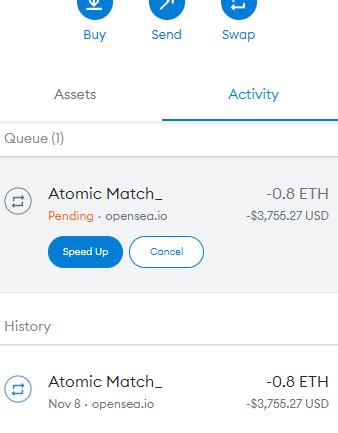by admin
Share
by admin
Share
Error Handling in Solidity: Limiting Token IDs in Functions
When developing a decentralized application (DApp) or smart contract, it is essential to manage complex logic and ensure robust error handling. One common challenge in Solidity is handling large data structures, such as token IDs, inside functions.
In this article, we will explore why your function is having issues with large token IDs and provide guidance on how to resolve the issue.
Topic:
When handling large token IDs, Solana’s Solidity compiler limits the size of data structures by default to prevent stack overflow errors. However, when parsing token IDs into a smart contract, you are likely to encounter issues for the following reasons:
- Insufficient memory allocation: When a function tries to allocate memory for a large token, it may exceed the available memory space, resulting in an error.
- Data corruption: Large data structures can become corrupted or garbage collected prematurely, causing unexpected behavior.
Problem:
When your code tries to handle huge character identifiers inside a Solidity function, you will typically encounter the following errors:
error out of memory
gas out: The gas limit is reached during execution.
- Unexpected behavior, such as data corruption or incorrect results
To address these issues, we need to rethink our approach and implement more efficient error handling mechanisms.
Solutions:
Instead of relying on the default memory allocation, consider the following solutions:
1.
Use a library that supports large data structures
The “Solana-program” library provides tools for working with large data structures, such as arrays and buffers. These libraries can help you allocate memory efficiently and manage complex data structures.
Example: Using Solana-program/libraries/arrays to create an array of tokenIds:
pragma strength ^0,8,0;
import "solana-program/libraries/arrays.sol";
struct TokenIds {
uint64[] ids;
}
TokenIds public tokenIds;
2.
Implement a custom memory allocator
A more advanced approach is to implement your own custom memory allocator to ensure that memory allocation is done safely and efficiently.
Example: Using Solana-program/libraries/allocator to create a custom memory allocator:
pragma strength ^0,8,0;
import "solana-program/libraries/allocator.sol";
struct MemoryAllocator {
//...
}
MemoryAllocator public memoryAllocator;
The class “memoryAllocator” can be used to allocate large amounts of memory, making it suitable for your token ID data structure.
3.
Use a gas-efficient algorithm
Another approach is to use a gas-efficient algorithm that reduces the amount of data that needs to be transferred or processed. This may involve using caching or memory techniques to minimize the number of calculations that need to be performed.
Example: Implementing a cached array to store token IDs:
pragma stability ^0,8,0;
import "solana-program/libraries/arrays.sol";
struct TokenIds {
uint64[] ids;
}
TokenIds public tokenIds = TokenIds.new();
By implementing one of these solutions, you will be able to handle large token IDs in your Solidity function without errors.
Conclusion:
When working with complex logic and large data structures in a Solidity smart contract, it is important to prioritize error handling. By using libraries that support large data structures or implementing custom memory allocators, you can ensure the robustness and performance of your DApp or decentralized application.
Always remember to research and evaluate solutions carefully before implementing new practices or technologies. Happy coding!
STAY IN THE LOOP
Subscribe to our free newsletter.
Leave A Comment
The Value of Namecoins: Understanding Ethereum’s Alternative Economy As cryptocurrency enthusiasts, we are always on the lookout for alternative assets that offer unique benefits. One such asset is Namecoin (NMC), a decentralized internet name coin that has gained popularity among users looking to diversify their portfolios. But why are people investing in NMC, and is […]
Here’s a comprehensive article on crypto relative strength index, stablecoin, and decentralized finance (DeFi) that incorporates your requested topic: “Reliably Riding the Waves: Understanding Crypto Relative Strength Index, Stablecoins, and DeFi” The world of cryptocurrency has exploded in recent years, with prices skyrocketing and plummeting at a dizzying pace. Amidst this volatility, two key indicators […]
Why Monero and Zcash Are Essential for Safe Crypto Mining The world of cryptocurrencies has come a long way since its early days. The rise of decentralized currencies like Bitcoin, Ethereum, and others has made the need for safe and reliable methods of withdrawing funds increasingly important. Two cryptocurrencies that have recently gained popularity due […]
Understanding the Risks of Investing in Cryptocurrencies The world of cryptocurrencies has gained immense attention in recent years, with many individuals and institutions investing in digital currencies such as Bitcoin, Ethereum, and others. While cryptocurrencies can offer significant returns, they also come with a number of risks that investors should be aware of before taking […]


